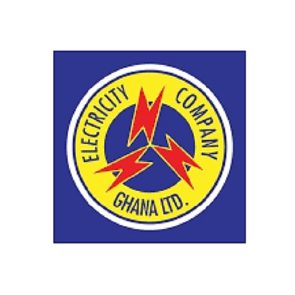Actually, I have never found the appropriate common term for power outages,
‘dumsɔ’ or ‘dumsor’ (meaning, in Akan, ‘off-on’), because I think it doesn’t quite capture the phenomenon, especially when it is prolonged; more ‘dum’ (off) than ‘sɔ’. I much rather prefer ‘adumdum-adumdum (erratic ‘dum’), although that is a bit of a mouthful and dumsor is easy on the tongue.
Anyhow, I think that adumadumdum best describes what some of us in Dansoman Estate, Accra, experienced last Tuesday, an unannounced, long, electricity loss.
Not that a blackout is new to any Ghanaian! Indeed, the coinage of ‘dumsor’, now found in some dictionaries and other reference works was the humorous tag generated by the estimated four years Ghanaians endured of it during the administration of former President, John Mahama.
Interestingly, my household’s experience happened the very next day after the Electricity Company of Ghana (ECG) started its unprecedented ‘Nationwide Revenue Mobilisation’ offensive to collect the colossal GHȼ5.7 billion the ECG says it is owed by some of its customers. Thus the Company has been making considerable headlines following its dramatic, long overdue, month-long drive from March 20, led by Managing Director Samuel Dubik Mahama himself.
What is of special interest to me is an initiative the MD has proposed to check power theft. As reported by Citi Newsroom, Mr. Mahama disclosed that, “We are going to meter every single distribution transformer (to) allow us to know the number of rooms connected to those transformers and the volume of power supplied; and when your meter is telling us otherwise, we will visit the area and calculate the average for all occupants to pay.”
It was also exciting to read in the Ghanaian Times of March 20, a report quoting Mr. Mahama as saying: “We are embarking on the exercise because through digitalisation of ECG’s systems, we have identified and have a clearer understanding of what has been missing in the numbers.”
This intriguing metering news prompts me to suggest: why can’t the ECG now also acquire technology that will IMMEDIATELY alert the company when there is an unplanned power disruption somewhere?
With such machinery, victims of power interruptions would not have to contact ECG before the Company finds out. Surely, this should be possible, following the company’s announced digitalisation programme? If there is technology to identify even rooms using power illegally, as Mr. Mahama has indicated, then it should be possible to have such alerting machinery.
At present, it appears there is no such system in place. When in the evening of March 21, the lights in my house went off, initially we wondered if our
prepaid meter was malfunctioning, because we knew we had more than enough credit on it.
Later, it emerged that a wide area was affected. We woke up the next day to the same situation. My SOS to the ECG’s 24-hour Call Centre early on March 22, was promptly answered, but the Call Centre Assistant had no idea that a whole segment of the Dansoman community had been off since 8 p.m. the previous night!
Part of our conversation went something like this:
ECG Assistant A: “Nobody has informed us. Is it the whole Dansoman?”
Me: “I’m in my house, so I wouldn’t know whether the whole Dansoman is affected. In fact, I thought you would know that!
Assistant A: “I will make a report to the engineers. Is your phone reachable, please?”
Me: “Well, obviously it will be reachable when there is power to charge it!”
Assistant A: “Is there anything else we can do for you?”
Me: “We only want our lights back! Or do you have generators to give us?”
A follow-up call at about 9 a.m. was answered by Assistant B who assured me that the fault had been identified and the engineers were working on it.
Me: “Do I need to call back to find out how soon they will finish?”
Assistant B: No, (ma’am). It should be resolved soon.”
Nevertheless, it wasn’t until about 5 p.m. that the power was restored. But at about 7. 40 p.m. the outage happened again. Mercifully, it didn’t last long.
Again, on March 23, in the afternoon, the lights went off for about an hour.
No explanation has come from ECG, much less an apology; but the rumour was that a transformer had “burned”.
Considering the extensive publicity about the debt collection, why can’t there be a similar approach concerning outage victims? Paid-up customers suffering outages should get at least an explanation, even if there is no apology. The irony was that those owing ECG huge amounts were still enjoying electricity while those of us not owing were suffering such stress!
Evidently the Call Centre staff try to sound caring. But when one is in power loss misery, with no information about when it is likely to end, one doesn’t want to hear “is there anything else we can do for you?” It is quite unhelpful; irritating! In fact, rubbing salt in the wound!
And what if affected people don’t even know about the Call Centre? Or, what if they haven’t been able to charge their phones to make a report?
Again, along with the proposed metering system, I suggest that it is equally important to have technology that notifies the ECG as soon as there is an outage anywhere.
That would enable managers provide Call Centre staff with at least some helpful information for distressed customers who call.
Opinions of Tuesday, 28 March 2023
Columnist: Ajoa Yeboah-Afari















